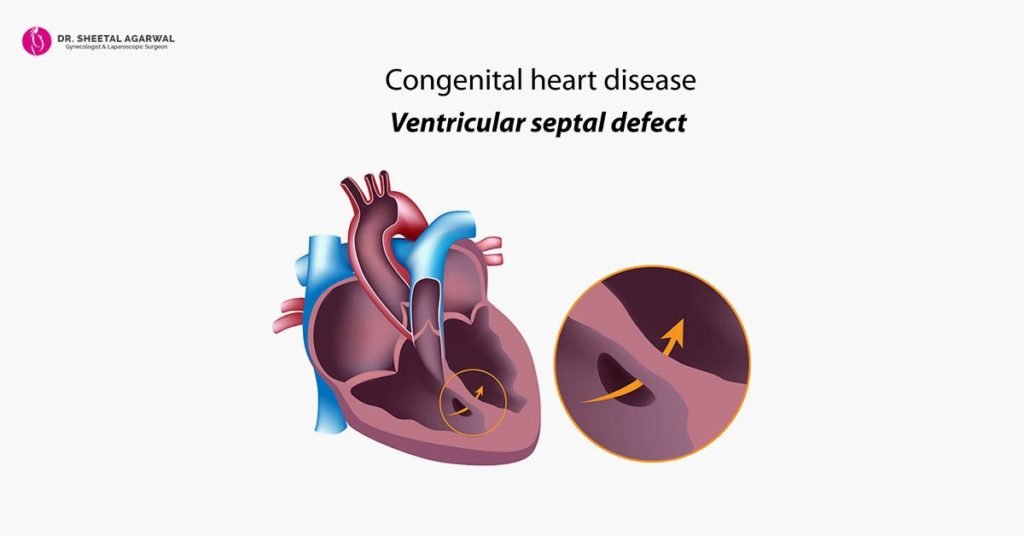Did you know that about 25% of babies born with a defect suffer from a critical congenital heart defect (CHD)? Such a defect in most cases is incurable and may lead to a life full of pain and suffering. Yet, there are certain steps that an expecting mother can take to help her unborn child.
This article not only talks about the required steps for prevention but also explains what a CHD is, along with its diagnosis and treatment. Keep reading!
What is a Congenital Heart Defect?
A Congenital Heart Defect or Congenital Heart Disease is an abnormality that a child is born with. Such an abnormality occurs when the structure of the baby’s heart is affected in some manner. This defect causes hindrance in the heart’s normal working and thus makes it a life-threatening disease.
Types of Congenital Heart Defects
The disease can affect the heart’s walls, blood vessels and the heart’s valves. Say, the defect affects the heart’s walls. This creates a possibility that the natural walls which develop in the upper and lower chambers of the heart might not have developed completely during pregnancy.
In another case, if the defect affects the blood vessels, the possibility is that the arteries and veins that are responsible for blood flow might not be functioning properly. Another possibility is that the heart’s valves might leak or get blocked. Thus causing, a hindrance in the regular pumping of the heart.
Such reasons may cause various types of Congenital Heart Defects like:
● Ventricular Septal Defect
● Atrioventricular Septal Defect
● Ebstein Anomaly
● Pulmonary Atresia
● Tricuspid Atresia
The possibility of complications and defects like these make it important for us to delve into what causes them.
Causes
While most cases of congenital heart defects do not have a known cause, the most common one observed is the individual’s inherited genes. Also, factors such as the mother’s diet and medication during pregnancy can affect an unborn baby’s heart development in the fetus.
Other scenarios due to which a child may develop a Congenital Heart Defect are:
1. Diabetes or Obesity in the mother
2. Consumption of alcohol or drugs during pregnancy
3. Heart defects running through generations
4. Viral infections during the first trimester of pregnancy
5. Smoking during pregnancy
Steps for Preventing the occurrence of CHD in your child

There is no denying that prevention is better than cure. That’s why it is a must for every pregnant woman to take care of herself during pregnancy. As an expecting mother, one should avoid consumption of alcohol, tobacco, illegal drugs, and certain medications during pregnancy. While we can’t control other factors like genetics, we should take care of whatever we can.
Diagnosis
If you observe blue-tinted nails, skin, toes, and lips in your baby, it might be a reason for you to get a proper diagnosis done for your baby. Other symptoms include difficulties while feeding, breathing troubles, tiredness and unusual heart-rhythms in a child. Also, if your baby had a low birth weight, it might be another sign to get him/her checked.
An experienced doctor may suggest some tests like Chest X-ray, Echocardiogram, Electrocardiogram, MRI etc. for the diagnosis.
If you are an expecting mother, it is suggested that you undergo a Fetal Echocardiogram. This test is a type of ultrasound that will create pictures of your unborn baby’s developing heart. Thus, helping you detect a Congenital Heart Defect early in the baby’s life. With early detection, treating the disease becomes easier, which will ensure your child has a longer and better life.
Treatment
The first method for treatment which is opted by doctors is proper medication. If that doesn’t work, implantable heart devices, an open-heart surgery, or a heart transplant might be required. The most common method that works is a procedure called Cardiac Catheterization.
A Cardiac Catheterization involves a long, thin tube which is known as a Catheter. A doctor inserts this in the body and threads it through blood vessels along with little tools. These tools help the doctor perform tests, and repair the damage to the heart.
While such treatments can help correct the defects to some extent, the success rates are not always 100%. This is especially true if the diagnosis takes place in the later years of the person’s life.
Yet, millions of people are living somewhat comfortable lives even with the congenital heart defects. A careful lifestyle with continuous care and regular visits to the doctor can help people with Congenital Heart Defects.
So, do not worry if you or your child are facing the troubles of such a disease. Trust the advancements in the medical industry.
Visit a Gynaecologist Today!
If you are pregnant then you must visit a trusted Gynaecologist and get yourself checked. Booking an appointment today may save you and your child from life-long terror of Congenital Heart Defects. With 24+ years of experience in helping mothers give birth to healthy children, it is more of my responsibility as a Gynaecologist than just a job to give you the best advice. Consult today!


